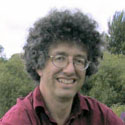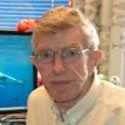Advisory Board and Editors Biological Oceanography

Mark E Hahn
Mark Hahn is a Senior Scientist and past Chair (2011-2016) of the Biology Department at the Woods Hole Oceanographic Institution (WHOI) in Woods Hole, MA, USA. He also is a Project Leader in the Boston University Superfund Research Program and the Woods Hole Center for Oceans and Human Health. Hahn received his PhD in Environmental Toxicology from the University of Rochester School of Medicine and Dentistry. He conducted postdoctoral research at WHOI before being appointed to the scientific staff in 1992. Dr. Hahn’s research foci include: molecular mechanisms of developmental toxicity following exposure to chemicals found in the marine environment; evolution of transcription factors (e.g. AHR, NRF2, nuclear receptors) involved in the response to chemicals; mechanisms of adaptation and evolved resistance to chemicals in fish following long-term chemical exposure, and microplastics in the marine environment. Dr. Hahn is author or co-author of ~175 papers in peer-reviewed journals and books. Dr. Hahn has trained graduate and undergraduate students and postdocs has taught several courses in the WHOI/Massachusetts Institute of Technology (MIT) Joint Graduate Program in Oceanography and Oceanographic Engineering and he has served as Chair of the Joint Committee on Biological Oceanography of the WHOI/MIT Joint Program and as Education Coordinator for the WHOI Biology Department.

Alan Hastings
Distinguished Professor of Environmental Science and Policy. Fellow of the American Academy of Arts and Sciences. Former President of the Society for Mathematical Biology and Editor of the Encyclopedia of Theoretical Ecology.

Scott F Heron
My research experience has spanned over 20 years and has focused on understanding coastal and near-shore environmental physical processes. Each of these research areas has involved the synthesis of physical information with the biological and/or chemical characteristics of the environment through the development of environmental and ecological models. In each of these areas I have published the work in international journals. For several years of this period, I taught physics at universities in Australia and the USA and created courses in environmental physics.

Kai-Uwe Hinrichs
A biogeochemist studying the interactions between microbial life and the carbon cycle on a range of spatial, temporal and molecular scales. Interested in which and how microbes shape element cycles and what the related environmental consequences are.
Current research foci encompass the marine deep biosphere, methane biogeochemistry, life in extreme environments, development of new analytical protocols for the analysis of organic trace constituents in geological sample matrices, prokaryotic membrane lipid taxonomy, and the study of paleoenvironments.

Christian Hoffmann
Assistant Professor of Microbiome and Nutrition, at the Dept of Food Sciences and Experimental Nutrition, at the University of São Paulo, Brazil, and a Research Fellow at the Laboratory of Applied Immunology, at the University of Brasilia. His experience is focused on the molecular ecology of microbial systems, especially host-associated microbial ecosystems. For the last 10 years, he has centered his research questions on the human gut microbiome, using both human studies as well as animal models. Key aspects of this research include the influence of the gut microbiome on health and disease, the modulation of the gut microbiome through diet and the immune system, especially through the use of unavailable carbohydrates.

Izwandy Idris
Dr. Izwandy Idris is Head of the South China Sea Repository and Reference Centre (RRC) within the Institute of Oceanography and Environment at the Universiti Malaysia Terengganu.
His research interests include the systematics (taxonomy), biology, and ecology of marine invertebrates, with in-depth works on the marine worm (Annelida: Polychaeta). Dr. Idris' research group works on several aspects including small-scale biogeography in coastal and estuary, biofouling ecology, biology, and ecology of commercially related species for sustainable application. His group also has started taking an interest in deep-sea polychaetes.
The overarching objectives of Dr. Idris' research group is to systematically catalogue the marine invertebrate diversity in Malaysia and to apply the knowledge on the ecological and biological requirements of the species for the betterment of people through economic empowerment, health, and the environment in a sustainable manner.

Malcolm Jobling
Professor of Fish Biology and Aquaculture. Authored and edited books on fish biology, physiology and nutrition, and aquaculture, and serving editorial board member for fisheries and aquaculture journals. Formerly, member of EUCost, ICES and academic society steering committees.

Magnus L Johnson
I am a marine scientist with eclectic interests including crustacean biology and fisheries, fisheries management generally, krill swimming behaviour, cleaner fish, coral reef systems, the relationship of marine commensals and their hosts and the eyes of shrimps. I work in the School of Environmental Sciences at the University of Hull where I am the Director of the MSc in Environmental Change Management and Monitoring. I am a fellow of the Marine Biological Association and a board member of the Science-Art foundation "Invisible Dust".

David W Johnston
Dave Johnston is a biological oceanographer and marine conservation ecologist whose research focuses on the habitat needs of marine vertebrates in relation to pressing conservation issues.

Jean-Lou Justine
Professor of parasitology at the Muséum National d’Histoire Naturelle, Paris, France.
A specialist of systematics of monogeneans and certain parasitic nematodes, also interested in parasite biodiversity in coral reef fish, phylogeny of Platyhelminthes and Nematodes, and land planarians. Curator of the collections of parasitic worms of the MNHN.
Former Editor of “Zoosystema” and “Mémoires du Muséum National d’Histoire Naturelle”. Currently Editor of “Parasite”, an open-access journal.
See my Publons profile for more information on peer-review activity.

Linda W Kelly
I received my doctorate in 2013 from the SDSU/UCSD Joint Doctoral Program in Cell and Molecular Biology. I joined the Dept of Biology at San Diego State University as an Adjunct Research Professor in 2014. My research focuses on understanding changes in coastal marine microbial communities in response to environmental perturbations. Most of my research thus far has focused on coral associated microbes. Specifically, I use metagenomics to identify the taxonomic distribution and functional capacity of microbial communities in marine ecosystems that are subjected to varying nutrient availability, anthropogenic stressors, and comprising different benthic compositions.

Konstantinos A Kormas
I completed my Biology BSc (1994) and PhD (1998) on marine ecology at the National and Kapodistrian University of Athens, Greece. I worked as a post-doctoral investigator on coastal Cyanobacteria at the Trondhjem Biological Station, Norway (2000) and at the Woods Hole Oceanographic Institution, USA (2000-2002) on deep-sea microbiology. In March 2005 I was appointed as faculty of aquatic microbial ecology at the Department of Ichthyology & Aquatic Environment, University of Thessaly, Greece. Since March 2015 I am a full Professor at the same department.
Our research group investigates processes that are related the distribution and abundance of microorganisms in different aquatic habitats and also aquatic animal-microbe interactions.

